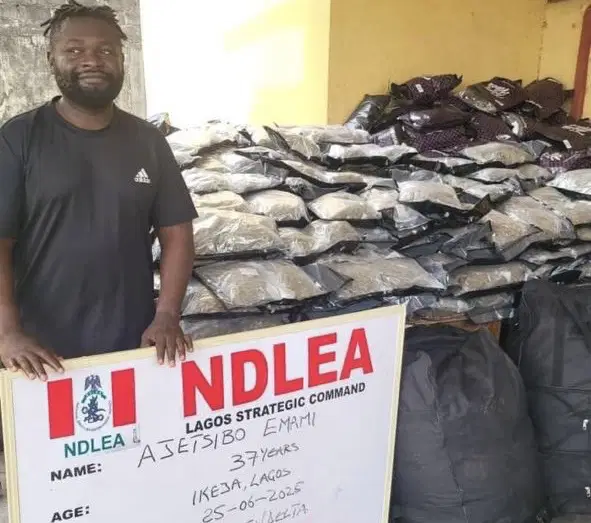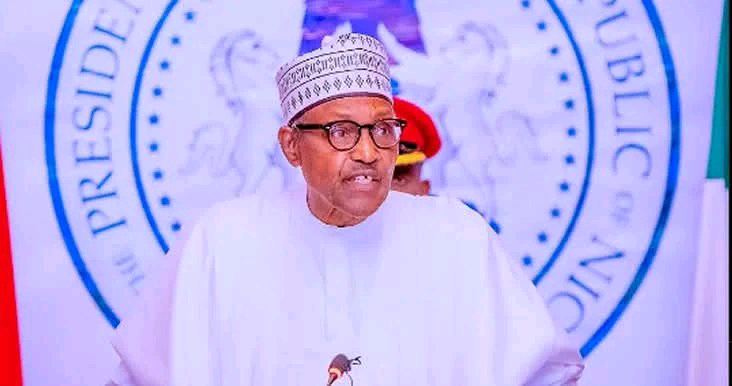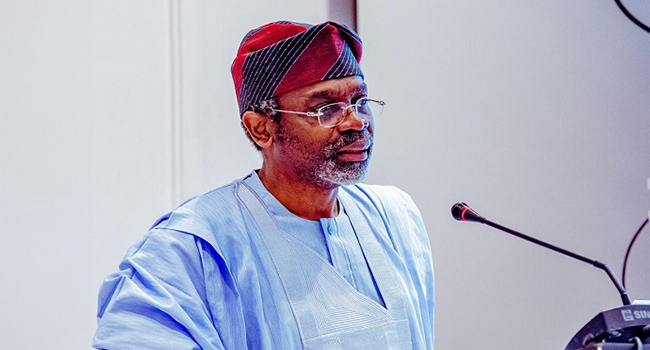Multiple residential houses located in highbrow Ikoyi, Lagos, allegedly owned by Senate President, Dr. Bukola Saraki have been sealed off by the Economic and Financial Crimes Commission, EFCC.
In his reaction, Saraki insisted that the action of the EFCC was a witch-hunt.
According to him, the property in question have been investigated by the commission several times in the past.
A statement by the Special Adviser (Media and Publicity) to the Senate President, Mr Yusuph Olaniyonu said: “Our attention has been drawn to the fact that the Economic and Financial Crimes Commission (EFCC) has marked certain property belonging to Senate President, Dr. Abubakar Bukola Saraki, obviously under the claim that they are subject of investigation.
“The action of the EFCC only reinforced our earlier stated position that their current investigation is mischievous, contrary to the tenets of the rule of law and only aimed at settling scores. This position is founded on the fact that these same buildings were the subject of earlier investigations by the EFCC as well as the case initiated by the Federal Government at the Code of Conduct Tribunal.
“Also, the case went all the way to the highest court in our country, the Supreme Court of Nigeria. In that case, Saraki was discharged and acquitted because the courts believe the government has no case.”
Saraki defected to the main opposition Peoples Democratic Party few weeks to the general elections.
Before his defection, his relationship with President Muhammadu Buhari had gone sour.
Saraki was charged before the Code of Conduct Tribunal for alleged infraction of the Code of Conduct for Public Officers.
The tribunal did not find him guilty of any offence.
Last week, EFCC confirmed reports that it had opened a fresh investigation into Saraki’s stewardship as Senate President as well as a probe of his earnings as governor from 2003 – 2011.
Replying to Saraki’s allegations that the ongoing probe was a witch hunt, the acting EFCC spokesman, Tony Orilade, in a statement in Abuja on Wednesday said the politician was not above the law, noting that the commission was obligated by law to enthrone probity and accountability in the governance space, a duty it claimed to have pursued without ill-will or malice against anyone.
The EFCC asked Saraki not to worry over the investigation into his earnings as Kwara State Governor and his stewardship in the Senate, “so long as he has no skeletons in his cupboard.”
The commission also said it possessed indicting petitions and other evidence against the Senate President, noting that putting him through a legitimate forensic inquiry was the legitimate route to establish his integrity as a public servant.
The EFCC refuted Saraki’s claims that the probe had to do with his appointment as the International Human Rights Commission ambassador.
It stated, “It is in the interest of the public, and for Saraki’s personal good, that he is not only above board, but be seen at all times to be so.
“Indeed, all the instances in which the EFCC has had cause to sleuth into his financial activities either as a former governor or President of the Senate were driven by over-arching public interest and due process of the law.
“Against the background of the possession of indicting petitions and other evidence available to the EFCC, even Saraki will agree with the commission that putting him through a legitimate forensic inquiry is the legitimate route to establish his integrity as a public servant.”
As part of the fresh probe of Saraki, the commission had written to the Kwara State Government to furnish it what the Senate President earned while he was governor of Kwara State.
Saraki was the state governor from 2003 to 2011, before his election into the National Assembly.
The anti-graft agency stated that it was investigating Saraki for an alleged case of conspiracy, abuse of office, misappropriation of public funds, theft, and money laundering.
In a letter to the Kwara State government, the EFCC demanded to be furnished with a breakdown of Saraki’s income, as well as his entitlements as governor of the state.
The letter signed by the EFCC Zonal Head, Isyaku Sharu, read: “In view of the above, you are kindly requested to furnish us with the full details of all his entitlements to include but not limited to emoluments, allowances, estacodes, other fringe benefits and severance package while he held sway as the Executive Governor of Kwara State between 2003 and 2011.
“This request is made pursuant to Section 38 (1) & (2) of the Economic and Financial Crimes Commission (Establishment) Act, 2004 and Section 21 of the Money Laundering (Prohibition) Act.”

 BIG STORY2 days ago
BIG STORY2 days ago
 BIG STORY3 days ago
BIG STORY3 days ago
 BIG STORY4 days ago
BIG STORY4 days ago
 BIG STORY4 days ago
BIG STORY4 days ago
 BIG STORY4 days ago
BIG STORY4 days ago
 BIG STORY3 days ago
BIG STORY3 days ago
 BIG STORY3 days ago
BIG STORY3 days ago
 BIG STORY5 days ago
BIG STORY5 days ago
























